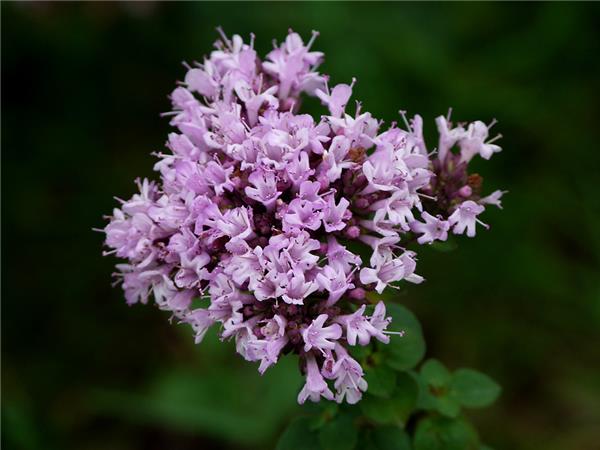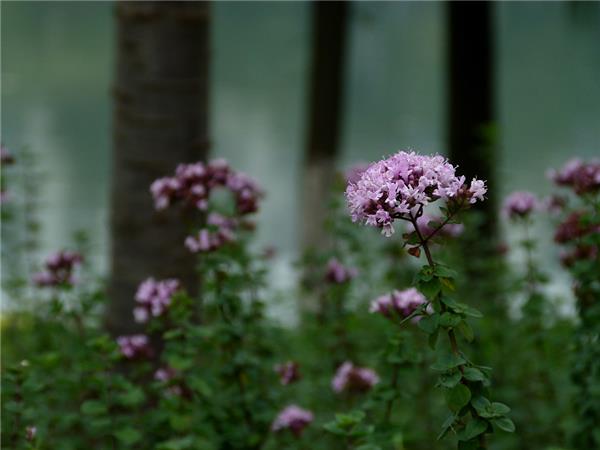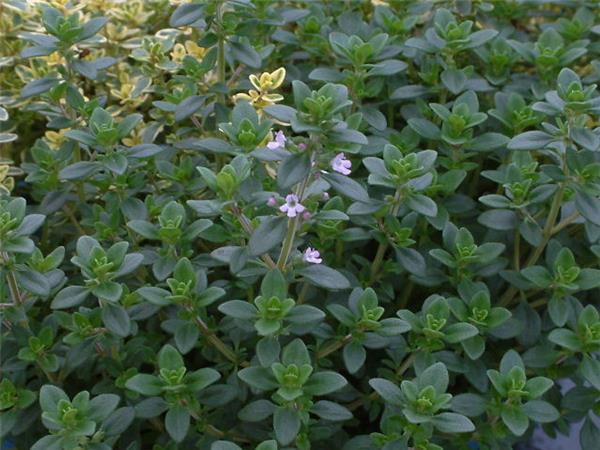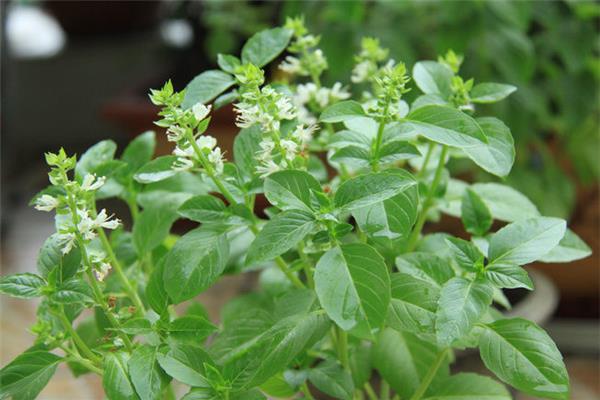How to plant thyme well
Thyme is a kind of vanilla that has been widely used since ancient Greece. it is still used to add unique flavor to dishes, and thyme has a strong germicidal effect. it can be used to make thyme tea, gargle, clean minor skin damage and so on. So how to grow thyme?
Thyme attaches importance to cultivation and management
Thyme is mainly planted under the cultivation bowl or bare root, and it is suitable to be planted in spring and autumn. The plant row spacing of European thyme can be slightly larger, and the creeping effect can be achieved after 20 to 30 days after survival according to the plant row spacing of 15 × 15 m in the growing period, while that of Mongolian thyme takes more than 45 days. If planted according to 30 cm × 30 m plant spacing, it can also crawl into slices in the same year.

If there is an urgent need for a creeping effect, thyme rolls can be used for planting when the sloping roof is greening, suppressed after planting, irrigated twice or three times according to the weather, and then routine management.
In the later maintenance, in addition to the conventional watering in the growing period, several watering should be arranged before the rainy season at the end of spring to cool down and solve the water problem. There is no need to irrigate in the rest of the period, which is also conducive to strengthening the roots and improving the ability of disease resistance and cold resistance.
European thyme is naturally overwintered in the form of persistent roots, and it takes more than 20 days for re-branching every year. Under fine management, edge cutting and flower branch thinning can be done to increase the landscape effect. If there is no snow, the green period can be postponed to mid-December and the dead branches can be cleared by mid-March.
After Mongolian thyme becomes ping, in early spring and early March every year, first sprouts from branchlets, and then vegetative branches sprout from rhizomes. The withered branch layer of a certain thickness will appear after 4 years. In order to ensure the landscape effect, the surface should be pruned once in winter to prolong the life of the flat.
Temperature: like warm climate, the most suitable temperature for growth is 20-25 °0. It is more hardy. Avoid high temperature and high humidity, when the plant growth is weak, and it is easy to rot. It is appropriate to plant in cool areas, or in cool places for summer, and at the same time take measures such as environmental water spraying and strengthening ventilation to reduce the temperature.
Light: like plenty of sunlight, lack of light will cause the plant to grow too much. But in summer and autumn when the sun is strong, it is necessary to take proper shade to avoid burning branches and leaves.

Water resources: because the leaves are slightly fleshy, they are slightly resistant to drought and avoid waterlogging. When the pot soil is too wet, the plant roots and branches and leaves grow poorly, and it will reduce the content of essential oil, and even lead to rotten roots and even plant death. Watering during the growth period should grasp the principle of "no dry, no watering, watering thoroughly". It would rather be a little dry than keep it too wet. The stagnant water in the basin should be poured out in time in the rainy season, and the basin soil should be prevented from getting too wet when it is hot in summer; it is more necessary to control watering in winter to keep the basin soil dry.
Fertilization: due to slow growth, do not need too much fertilizer. When the growth is exuberant in spring and autumn, thin fertilizer is applied once every semimonthly. For the species with speckled leaves, the fertilizer with the combination of phosphorus and potassium should be applied to make the color of the speckles bright. Fertilizer should be stopped in summer and winter, especially the growth of plants is weak in summer, and fertilization can easily lead to the death of rotten roots. ℃
Pruning: coring should be carried out when seedlings to promote branching and form dense. Shape. Usually can be combined with pruning, cutting branches and leaves for use. Prune the heterozygote to maintain the beauty of the plant and facilitate ventilation and light transmission. When trimming, you should note the warehouse, and don't cut it too low to a lignified book. 'otherwise, the sprouting power and germinating power will resume the growth of the elder sister mm. If there are variegated leaves or colors on the leaves, if there is a thickening phenomenon (branch # all green), the grains will be removed. The plant of the tree year society, the stem is lignified, and the m is already rich. If the tearball has been trimmed to restore the normal growth of ℃, consideration should be given to eliminating gambling.

Planting and turning the basin: it is generally necessary to turn the basin once in about 2 years. Qian is a well-drained neutral or alkaline soil. Pot substrate can be prepared with rotten leaf soil, peat soil and other materials, and added 20 /. The left and right perlite, rice bran ash, coarse sand and other hydrophilic materials, at the same time in the basin bottom multi-cushion drainage layer.
Morphological features:
The plant is about 20cm high, and the whole plant has aroma and mild spicy taste. The lower part of the stem is creeping and tufted, the upper part is erect, quadrangular, much branched. Leaves opposite, narrowly elliptic or lanceolate, ca. 0.7cm long, ca. 0.3cm wide, grayish green, leaf margin revolute. Early summer flowering, whitish with red, diameter 0.2cm, verticillate inflorescences terminal. Seeds small, orbicular, about 6000 seeds per gram.
Ecological habits:
There is plenty of light. The requirement of soil quality is not high, but it needs good drainage.
Cultivation management:
It can be propagated by sowing, cutting, pressing and dividing. Because the seed is small, sowing is better, you can first fully wet the medium and spread the seed evenly on it. When growing 4-6 leaves, it can be moved to a smaller container (such as hole plate), and then moved to the basin when the root system of the plant is well developed. Apical buds can be taken as cuttings, with 3-5 nodes as good, but be careful not to take the Lignified branches, their rooting ability is poor. If the potted plant uses peat soil as the cultivation material, about 20% river sand should be added to facilitate drainage. It is better to dry a little and then water it than keep it wet. Due to the slow growth rate, do not need too much fertilizer, if peat as the medium, only need to add about 5%-10% mature organic fertilizer, after the plant grows up, once every 1-2 weeks watering liquid fertilizer, summer growth is weak, it is not suitable to apply fertilizer at this time.

Application:
Can be planted in the courtyard. Fresh branches and leaves can be eaten directly, or spices can be used, and essence can also be extracted as bath products. It can improve the discomfort of nose and throat, help digestion, diuresis, expel Ascaris lumbricoides and so on.
Medicinal efficacy:
Dispelling wind and relieving surface, relieving pain and relieving pain, relieving cough and reducing blood pressure.
If the potted plant uses peat soil as the cultivation material, about 20% river sand should be added to facilitate drainage. It is better to dry a little and then water it than keep it wet. Due to the slow growth rate, do not need too much fertilizer, if peat as the medium, only need to add about 5%-10% mature organic fertilizer, after the plant grows up, once every 1-2 weeks watering liquid fertilizer, summer growth is weak, it is not suitable to apply fertilizer at this time.

Application:
Can be planted in the courtyard. Fresh branches and leaves can be eaten directly, or spices can be used, and essence can also be extracted as bath products. It can improve the discomfort of nose and throat, help digestion, diuresis, expel Ascaris lumbricoides and so on.
Medicinal efficacy:
Dispelling wind and relieving surface, relieving pain and relieving pain, relieving cough and reducing blood pressure.
Related
- Wuhan Hospital Iron Tree Blooming Result Was Instantly Frightened by the Gardener Master
- Which variety of camellia is the most fragrant and best? Which one do you like best?
- What is the small blue coat, the breeding methods and matters needing attention of the succulent plant
- Dormancy time and maintenance management of succulent plants during dormancy
- Minas succulent how to raise, Minas succulent plant pictures
- What are the varieties of winter succulent plants
- How to raise succulent plants in twelve rolls? let's take a look at some experience of breeding twelve rolls.
- Attention should be paid to water control for succulent plants during dormant period (winter and summer)
- Watering experience of twelve rolls of succulent plants
- Techniques for fertilizing succulent plants. An article will let you know how to fertilize succulent plants.



